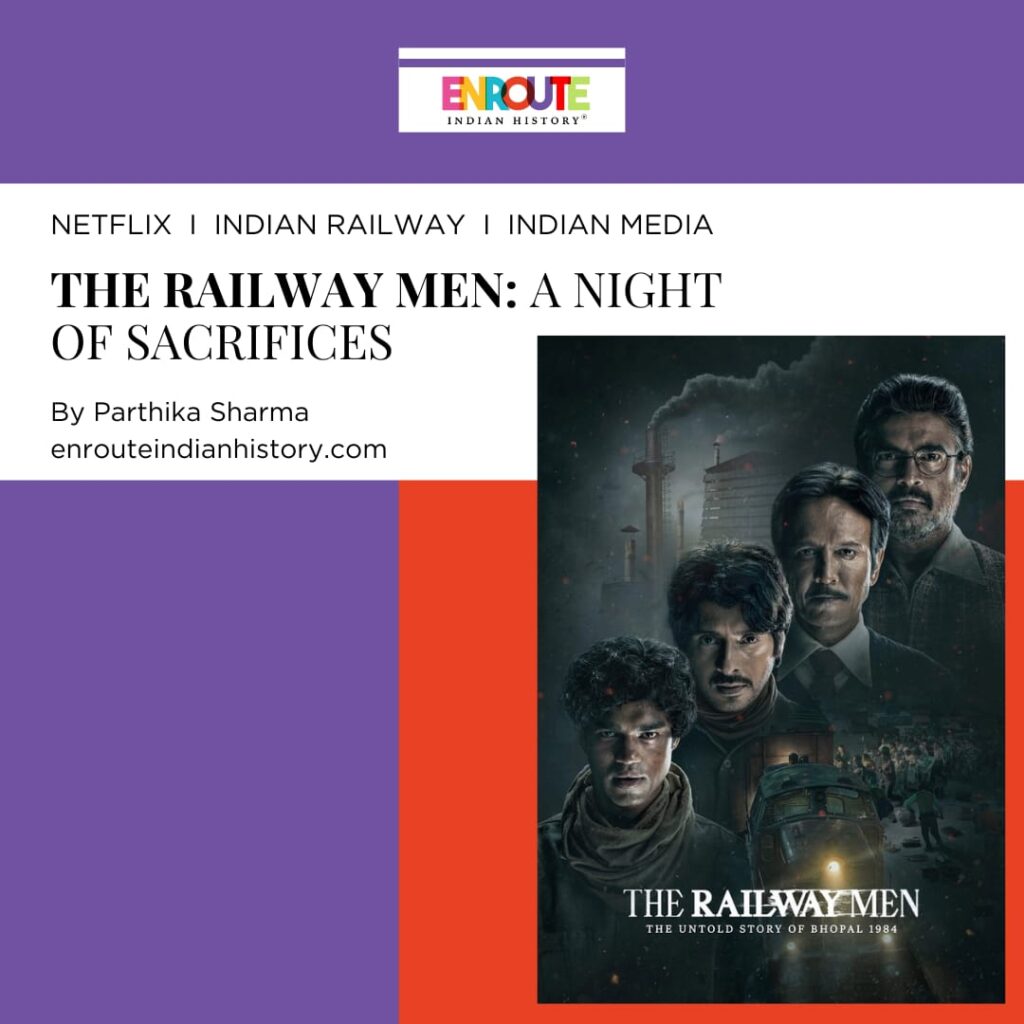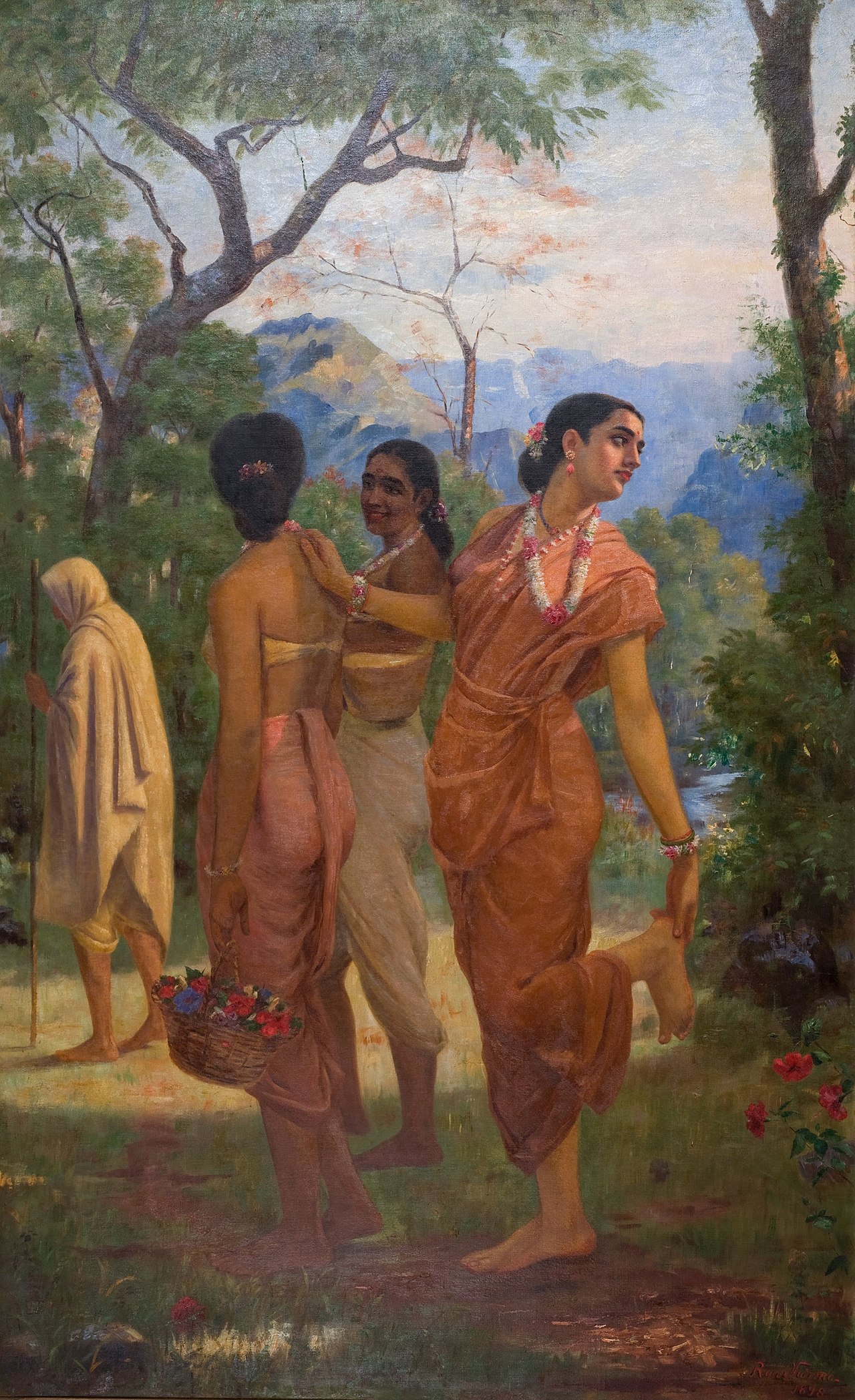
Do not go gentle into that good night.
Rage, rage against the dying of the light.
-Dylan Thomas
Nights are always associated with darkness- death, nightmares, cold, and fear. The unconscious and the monsters that slumber inside that stir in the dark are represented by darkness just as much as the unknown black fissures in the infinitesimal expanse of the cosmos. On this particular night in December of 1984, a few people’s darkness delivered an unending nightmare to a great number of people, marking a turning point in history for the majority and an unending sorrow for a select few.A massive industrial catastrophe that struck Madhya Pradesh’s capital city in 1984 is regarded as the worst industrial accident in recorded history.The accident happened as a result of a chemical leak at a Union carbide pesticide factory.

This is the setting for one of Netflix’s most recent releases, The Railway Men: The Untold Story of Bhopal.
The Railway Men tells the story of a few Northern Railway officials and some alert locals who were among the first to recognize the seriousness of the situation and who, in the face of overwhelming odds, rebelled against the red tape and apathy that are so fundamental to a massive “sarkaari” organization. It highlights the stark difference between the high-ranking “sarkaari-afsar” who were stalling the operations so they would not be held accountable and the lower-ranked members of the organization who were either present in the heart of it all or at least eager to go in and try their best.
There are several threads to the story that jump about in time. The story starts in the future when Sunny Hinduja’s character, a reporter, observes from a distance as Warren Anderson, the chairman of Union Carbide, is first arrested upon his arrival in India and, a few hours later, is transported out of the nation on a government-approved jet, never to return. Gandhi is cynically quoted by the journalist as saying, “An eye for an eye makes the whole world blind,” and he points out that although Gandhi’s killers were hanged, those who slaughter thousands of “common men” usually escape punishment.

The majority of the first episode focuses on the backstories of the series’ central protagonists as well as the various ways in which the tragedy’s night may have been avoided.
The sincere and meticulous stationmaster of Bhopal Junction railway station, Iftekaar Siddiqui (Kay Kay Menon), is plagued with remorse over his failure to save a youngster in a horrific disaster years prior.The thief Balwant (Divyenndu Sharma), posing as a constable in the Railway Police Force, is merely in the wrong place at the wrong time.He contributes to the film’s multi-layered intricacy of meanings and emotions, which attempts to capture the night from every perspective. An ex-Union Carbide employee named Imad Riaz (Babil Khan) is attempting to destroy the firm because his fellow worker was murdered in a leak a few years ago.

The evening wore on, lull before the storm, each person trying to do their best to atone for their past.
One thing is certain: by the time anyone discovers what is happening, it is too late. A single puff of green smoke is seen shooting into the night sky during the exquisitely captured moment at the start of the leak with an overtone of green and yellow. The artistry of the moment of discovery is flawless; as the workers analyze what went wrong, you can sense the knowledge that there is no way to fix it.
At the Bhopal Railway Station, chaos breaks out as people start dying one by one and communications are disrupted. From that point on, the drama only intensifies, keeping you on the edge of your seat the entire time in the hopes that humans and animals do not keep falling dead in that manner, even when you know what is going to happen. A bull hanging from a pole, a baby nursing from its head mother, people stomping on one another, passengers coughing, foaming at the mouths, and bodies in heaps; the filmmakers have employed straightforward scenes to portray the horrors of the tragedy in the most authentic way possible.

Iftekaar assembles the surviving passengers in the Indian Railway waiting room of the station and seals off the doors, the mob mentality somewhat controlled as Balwant keeps them at gunpoint.
He and Imad try to get in touch with the closest intersection, requesting that they dispatch a rescue train in addition to stopping the incoming Gorakhpur Express, which is carrying thousands of passengers, from arriving in Bhopal.
Obviously, their message is not received. However, the peculiar General Manager of the Central Railways, Rati Pandey (R Madhavan), recognizes the warning indications of the impending calamity. His first move is to call Rajeshwari (Juhi Chawla), his old partner in Delhi, for assistance, but this is ineffective because of the widespread corruption. He takes matters into his own hands, delivering a speech about saving his family of lakhs, which inspires others to join him. An almost-collision between the relief train and Gorakhpur Express adds to the drama, prevented by Imad who loses his life in the process. Iftekaar too seemingly dies, but not before making sure that Gorakhpur Express departs from Bhopal after collecting a few casualties.
But for a four-episode story, there’s a lot going on: a marriage, a train to Bhopal carrying a frightened Sikh family fleeing rioting mobs after Indira Gandhi’s assassination a con man eyeing a trunk full of cash in the station locker; a German scientist told to shut up about the danger of the gas; a delivery of a child with brain injuries; and all of these sequences end up detracting from the narrative rather than enhancing it. One wishes that the political turmoil and the aftermath of the night could be explored more.

Telling untold tales of unsung heroes may be challenging. Being “inspired by true events” allows the producers to be creative with the facts, which makes them prone to embellishment.
Achieving the ideal balance is crucial. However, if there is one thing the show captures the best, it is the oneness that comes with tragedy. Bhopal was one huge family on that terrible night. As Imad says in the beginning, “Yeh meri basti hai, mera seher hai (this is my slum, my city).” It was precisely this that set them apart from their Delhi counterparts and motivated them to consider their town before themselves. It also captures the relationship between Indians, Railwaymen and Indian Railway, always trusted by the former. Looking back at train stations is a severe transgression; it is an immoral signal of hope for people left behind and the setting of the netflix show precisely captures this hope and the darkness that comes with the night.
All Images Courtesy @YRF Entertainment/ Netflix
REFERENCES:
- Unknown (November 20 2023), ”’The Railway Men’ movie review: A poignant, powerful drama”, https://www.newindianexpress.com/entertainment/review/2023/nov/20/the-railway-men-movie-review-a-poignant-powerful-drama-2634388.html
- Latha Srinivasan (November 20, 2023), ”The Railway Men review: Great performances marred by fiction-like storytelling ”, https://thedailyguardian.com/the-railway-men-review-great-performances-marred-by-fiction-like-storytelling/
- Shilajit Mitra (November 18, 2023 ), “‘The Railway Men’ series review: A bracing, wishful saga of bravery”, https://www.thehindu.com/entertainment/movies/the-railway-men-series-review-a-bracing-wishful-saga-of-bravery/article67547235.ece
- May 15, 2024
- 6 Min Read


























